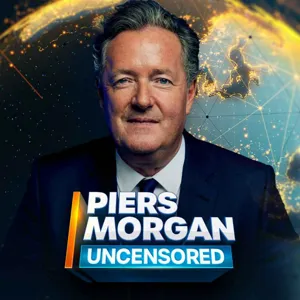Podcast Summary
Conflict in Israel and Gaza with potential regional and international implications: The ongoing conflict in Israel and Gaza, involving regional and international actors, could lead to escalation and potential oil shortages and economic instability on a global scale
The ongoing conflict in Israel and Gaza, and the involvement of regional and international actors like Hezbollah, Houthi rebels, the US, and the UK, could lead to escalation and increased tensions in the Middle East. This could have significant implications for the region's most important export, oil, and potentially cause oil shortages and economic instability on a global scale. Middle East watchers typically see escalation of conflict unfolding in three stages: the initial conflict in Israel and the Palestinian territories, the proxy war that spills into neighboring countries like Lebanon and Syria, and the potential for wider involvement of major powers. The recent attacks in Lebanon, Yemen, and Iraq, and Iran's response, have raised concerns about the possibility of a larger conflict encompassing the entire region.
Middle East Conflict Risks to Global Economy: Disruption of Oil and Gas Trading and Food Prices: The Middle East conflict could disrupt oil and gas trading, leading to higher energy and food prices, potentially causing food insecurity, sickness, starvation, and political instability in developing countries.
The ongoing conflict in the Middle East between Israel and its regional rivals, which has already entered the second phase involving multiple countries and non-state actors, poses significant risks to the global economy. The most pressing concern is the potential disruption of oil and gas trading volumes from major producers in the Gulf States, which could lead to a surge in energy prices and, in turn, food prices. This could exacerbate food insecurity in developing countries, potentially leading to a cascade of negative consequences, including sickness, starvation, and political instability. Additionally, the ongoing attacks on ships in the Red Sea by Houthi rebels could further disrupt global trade and increase the cost of essential commodities. The economic ripple effects of these conflicts could have far-reaching consequences, impacting not only the Middle East but also the rest of the world.
Geopolitical tensions impact global trade and energy markets: Ongoing conflicts in Middle East and Eastern Europe increase shipping costs, vulnerabilities to disruptions, and risks to global energy supplies
The ongoing geopolitical tensions and conflicts, particularly in the Middle East and Eastern Europe, are significantly impacting global trade and energy markets. The longer shipping routes around Africa for goods from Asia to Europe, due to the Russian invasion of Ukraine, have led to increased costs and vulnerabilities to disruptions. The rising oil shipments from Russia and the potential for disruptions in key oil shipping lanes like the Strait of Hormuz, where 15% of the world's oil passes, pose significant risks to global energy supplies. The potential for further escalation, such as a conflict between Iran and Israel, could lead to additional supply disruptions and higher prices. Overall, these geopolitical risks are adding significant uncertainty and volatility to global markets.
Potential oil disruption from Iran and Saudi Arabia could lead to inflation and recession: Oil disruption from Middle East could cause inflation, potential recession, but current economic conditions keep prices in check
A potential disruption in oil production from both Iran and Saudi Arabia could lead to a significant increase in oil prices, causing energy-related inflation and potentially triggering a global recession. This scenario, reminiscent of the 1973 oil embargo, could result in stagflation - a combination of stagnant growth and high inflation. However, despite tensions in the Middle East and disruptions to shipping routes, oil prices have not significantly increased due to expectations of a global economic slowdown and increased supply from producers like the US.
Potential Economic Dangers from Middle East Tensions: Tensions in the Middle East could lead to higher oil prices if Iran gets involved and Gulf States restrict their fossil fuel supplies, but the outcome is far from certain
The potential economic danger from escalating tensions in the Middle East is significant, but it's not a certainty. Both David and Rachel agree that the situation could lead to higher oil prices if Iran gets involved and Gulf States restrict their fossil fuel supplies. However, for now, all the dominoes seem to be holding steady. It's important to remember that this is a complex issue with many moving parts, and the outcome is far from certain. This episode was produced by Corey Bridges, engineered by Josh Newell, fact-checked by Sarah Juarez, and edited by Cake and cannon. The Indicator is a production of NPR. Support for NPR comes from Saatva, where you can find luxury mattresses sold online for about half the price of traditional retailers. Visit Saatva.com/npr and save an additional $200. And from Capital One, where the Spark Cash Plus card offers unlimited 2% cash back on every purchase for your business. Learn more at capitalone.com/sparkcashplus. Terms and conditions apply.






